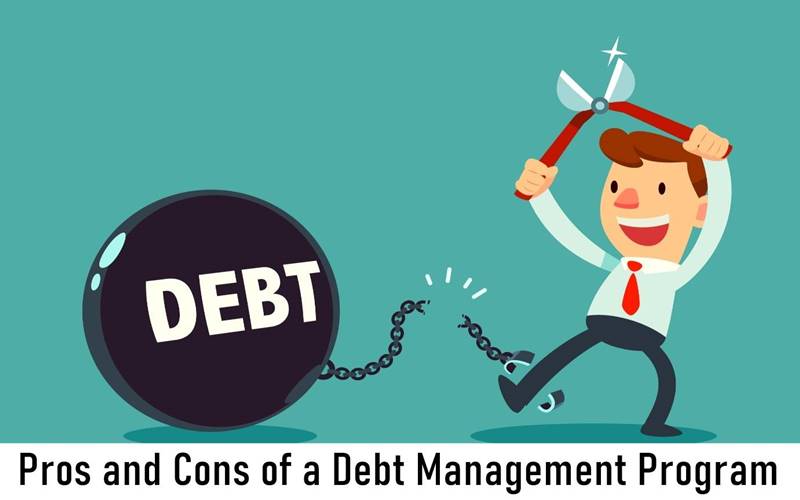Debt management programs (DMP) can be a great way to get your finances back on track. But, like any financial decision, there are pros and cons to consider before enrolling in a debt management plan. This blog post will weigh the pros and cons of a debt management program so you can know if it’s right for you.
What is a Debt Management Program?
A DMP is an organized plan where you make one monthly payment to an accredited credit counseling agency instead of multiple payments to different creditors each month. The credit counseling agency will then distribute the funds among all your creditors according to the agreed-upon terms. This can help simplify how you manage your bills and make it easier to track what payments are due and when.
Pros of DMPs
Reduced Interest Rates
One of the main benefits of a DMP is that it can reduce the interest rates you’re paying on your debts. This reduces how much you need to pay each month and helps to reduce how long it will take you to pay off your debts completely. Since high-interest rates can make it difficult or impossible to pay down your debt, this reduction in interest rate is a major pro when considering a DMP.
Consolidation of Payments
Another benefit of a DMP is that it consolidates all your payments into one monthly payment instead of having multiple bills due at different times. This makes managing your payments easier since there’s no need to worry about keeping track of multiple due dates and amounts owed each month. It also simplifies the process, ensuring all bills get paid on time and in full each month.
Improved Credit Score
By sticking with a DMP such as Achieve’s debt resolution program, you will improve your credit score by showing creditors that you’re serious about paying off your debts and taking control of your finances. As long as you continue making regular payments on time and following through with the terms of the agreement, you should see an improvement in your credit score. This could open up opportunities for lower interest rates on other loans or lines of credit.
Protection From Creditors
Once enrolled in a DMP, creditors must stop contacting borrowers about repayment plans or collection activities as long as payments are kept up-to-date, as stated in the DMP agreement contract between the borrower and creditor(s). This means individuals enrolled in DMPs do not have to worry about harassing phone calls from creditors trying to collect payment from them anymore, which can be a huge relief.
Cons of DMPs
Unexpected Costs
One of the main drawbacks to DMPs is that they often come with unexpected costs, such as fees for setting up the plan, monthly service fees, and other administrative expenses. These costs can add up quickly and may even outweigh any savings you get from the reduced interest rates or negotiated settlements, so it’s important to consider all costs before enrolling in a DMP.
Loss of Credit Cards
Another major con of enrolling in a DMP is that you will likely have to close all your credit cards. Any rewards or cashback points accrued on those cards will also be lost. Additionally, closing your credit cards can also impact your credit score since it will reduce the average age of your accounts and the overall available credit.
Weighing The Pros and Cons Of A Debt Management Program
Overall, a DMP can be a great option for individuals looking to manage their debts and improve their credit. However, it is important to consider all the pros and cons before deciding if it is right for you. Other alternatives could provide more long-term financial relief, so be sure to explore all your options before making a decision. You may consult a financial advisor or credit counselor to help you make the best decision for your situation.
How to track my new SBI DEBIT CARD STATUS 2022
Pros and Cons of a Debt Management Program
